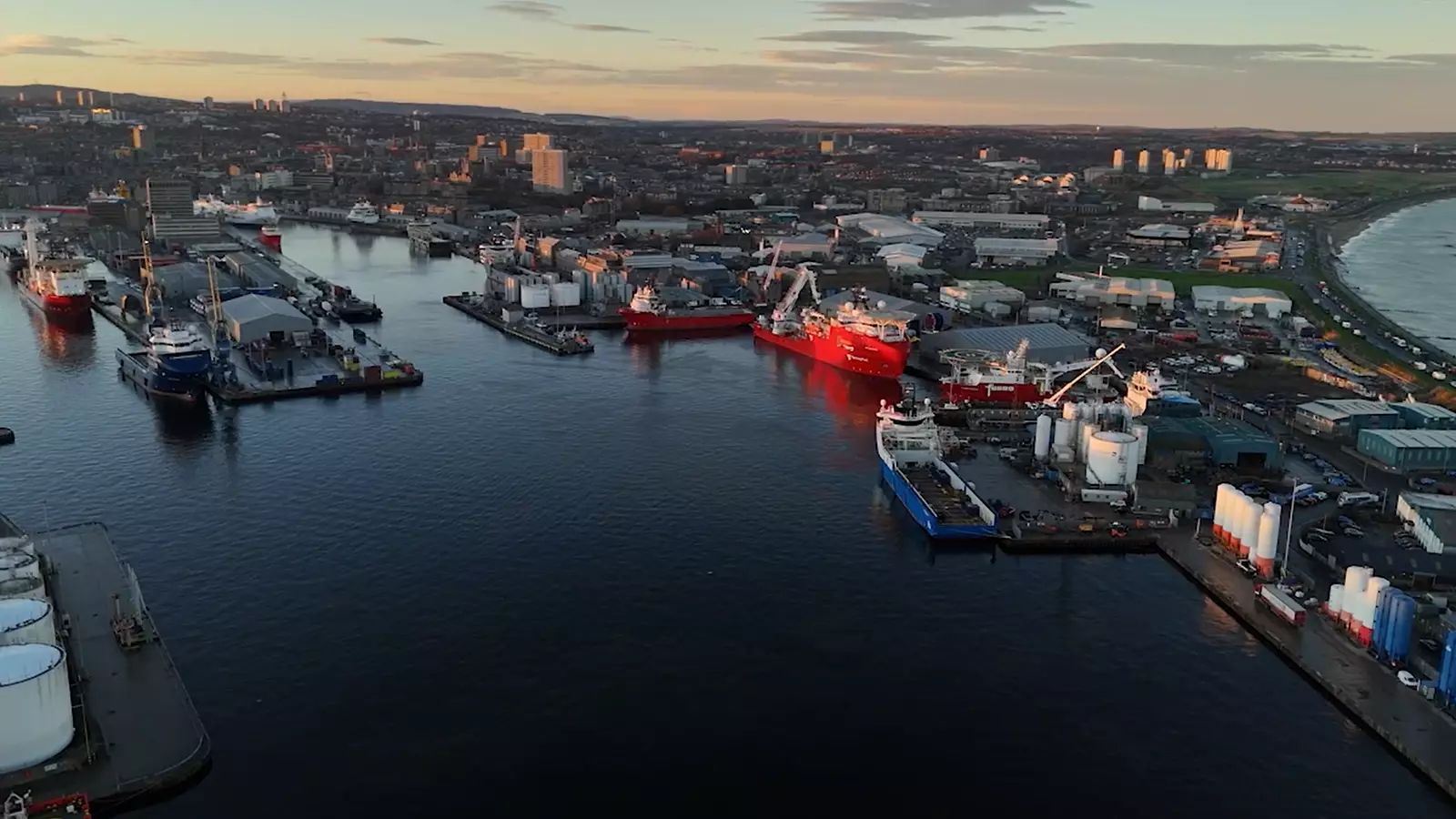The promise of economic revitalization through green energy initiatives is captivating, especially in a region like Aberdeen, which has historically centered its economy around oil and gas. However, the recent statements from Juergen Maier, chairman of the newly established GB Energy, about a potential 20-year timeline for fulfilling Labour’s ambitious pledge of creating 1,000 jobs in the region, have raised serious concerns. This article will explore the implications of such timelines on the local economy, the expectations set by political leaders, and the ongoing uncertainty that many workers currently face.
When Sir Keir Starmer first announced the Labour Party’s commitment to establishing GB Energy in Aberdeen, it was framed as a cornerstone of a wider agenda to transition to a more sustainable energy future. Starmer promised that this initiative would not only create jobs but reduce consumer energy bills by up to £300. At the heart of this initiative was an expectation of immediate benefits to the local workforce, particularly those transitioning from the oil and gas sectors. Unfortunately, initial conversations suggest that the reality may be much more complex.
Maier’s reluctance to provide a specific timeline for job creation and energy bill reductions is particularly troubling. When pressed on how quickly the envisioned benefits would materialize, he pointed to the company’s nascent stage and highlighted the long developmental timelines typically associated with energy companies. His statements underscore a disconcerting truth: the state is unprepared to meet the urgent needs of workers in a region already facing employment instability.
The energy sector in Aberdeen has historically employed around 50,000 people, primarily in oil and gas. The announcement of GB Energy comes at a precarious moment, with many in the workforce feeling the threat of job loss looming over their heads. The Aberdeen and Grampian Chamber of Commerce expressed a notable degree of anxiety, with Chief Executive Russell Borthwick underscoring the community’s urgent need for “quick wins.”
The feeling of nervousness permeating the local economy indicates that the community is looking for assurances that the transition towards a green economy will not jeopardize their current livelihoods. In a city already impacted by fluctuations in the oil market, the prospects of a long-term transition to green jobs, as suggested by Maier, appear daunting.
Union representatives have voiced concerns about the risk that GB Energy might over-promise and under-deliver on its job creation commitments. Derek Thomson from Unite cautioned that the failure to establish a concrete plan could become catastrophic for the northeast of Scotland. With 200 to 300 jobs slated to be created directly by GB Energy over the next five years, the projection of reaching 1,000 jobs feels like an unreachable goal shrouded in uncertainty.
Richard Hardy of Prospect emphasized the need for a solid plan that substantiates these lofty promises. He articulated the skepticism many feel: if only a fraction of the promised jobs materializes, it would not only be perceived as a failure on GB Energy’s part, but it could also undermine public confidence in transitioning towards green energy as a sustainable future for the community.
As the landscape of energy continues to shift, it is essential that GB Energy and the Labour government provide clear, actionable steps to demonstrate progress. The community’s anxiety is palpable, and quick action can quell fears that the transition may leave behind a trail of unemployment rather than paving the way for new opportunities.
Transparency and accountability will be crucial to win the trust of both the workforce and the public. If the company stays committed to its timelines and objectives, it could serve as a model for similar initiatives in other regions. However, if it fails to deliver, the repercussions will not only impact the workforce on an individual level but could also set a precedent for public skepticism towards future green energy projects.
The endeavor to establish GB Energy as a pivotal player in the green energy landscape is commendable, but it is fraught with challenges, particularly in fulfilling the promise of job creation for those displaced from traditional energy sectors. As Aberdeen stands at a crossroads, the path forward requires a dedicated effort from all stakeholders involved. Only through genuine commitment, timely action, and robust planning can Labour hope to turn the vision of a greener economy into a tangible reality for the people of Aberdeen. There is much work to be done, and the community’s future is riding on these promises not being mere words but the foundation of a transformative shift towards sustainable energy.


Leave a Reply